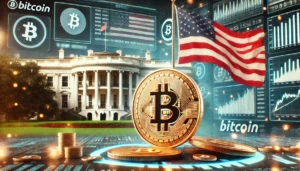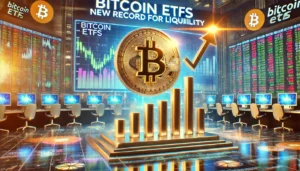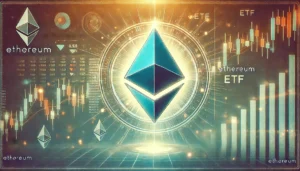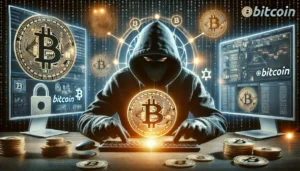Is the war fueling a “new financial world order”?
4 min readAccording to Zoltan Pozsar, the Russia-Ukraine war may lead to “regime change in the financial markets”. At Credit Suisse, he is responsible for the global management of the short-term interest rate strategy. In his Monday report of March 7, 2022 he writes:
We are witnessing the birth of Bretton Woods III – a new (monetary) world order based on commodity-based currencies in the East, which is likely to weaken the Eurodollar system and also contribute to inflationary forces in the West.
Zoltan Pozsar, March 07, 2022
He concludes that “money” will not be the same by the end of the war – and BTC, if it still exists, should benefit from this change.
Credit Suisse on “regime change in the financial markets”
For international trade, currencies must be interchangeable in some form. For this it is necessary to decide how much the respective national currencies are actually worth. After World War II, the eponymous Bretton Woods, New Hampshire, USA decided to set fixed exchange rates. The United States undertook to exchange the currency for gold at any time. Thus, gold was chosen as “the anchor” for the world market. After this “Gold Standard” collapsed in 1971, “Bretton Woods II” developed. In this system, what we have seen so far is that currencies are hedged with so-called “inside money” – liabilities denominated in other nations’ currencies on banks’ balance sheets. The fact is that this inside money mostly represents US dollars outside of the US. This makes the American currency the guide money and the main reserve currency for the world market. But this has now gotten a crack.
In Zotar’s eyes, this system has now come to an end with the confiscation of Russian foreign currency by the G7. Because Russia, as a “surplus actor”, has built up a mass of national reserves through the sale of its raw materials over the past decades. Due to the freezing, these are no longer accessible to the Russian state. As a result, the country no longer has the option of using this lever to save its own currency and support its own economy. That was the idea of the G7 countries to force Russia to give in to the war conflict in Ukraine. But that also has its price for the West. Then:
If you believe that the West can craft sanctions that maximize the pain for Russia while minimizing risks to financial and price stability in the West, you might believe in unicorns, too.
Zoltan Pozsar
What happens now?
What you can now see after Zoltan Pozsar is that there is a big difference between Russian and non-Russian commodity prices. Because two dynamics are now becoming apparent: on the one hand, the buying nations and private companies are going on strike, which means that Russian raw materials can no longer be exported, which is leading to falling Russian prices. On the other hand, the same nations have to buy up oil, wheat and co. from others at increased prices, which leads to rising prices in the rest of the world market. On the one hand, this has the consequence that inflation dynamics in the West (ie also in Germany) are intensifying. On the other hand, the Russian actors have to try to sell their products to partners who are still cooperating in order to earn money for their own economy.
According to Poszar, the only player that can do just that and is benefiting from it is the People’s Bank of China. The Chinese central bank can take advantage of this spread “because it is betting on a state that will dance to its own tune.” By buying cheap Russian commodities against US dollars, the Chinese currency will be able to rely more on commodities than on the competitor currency. Regarding Poszar:
When this crisis (and war) is over, the US dollar should be much weaker and the renminbi much stronger, backed by a basket of commodities… when this war is over, ‘money’ will never be the same… and BTC (if it still exists then) will likely benefit from all of this.
Zoltan Pozsar
In Pozar’s eyes, this ends the era of “inside money” and the beginning of a financial world with a focus on “outside money”. For central banks, this means in the future not (only) hedging their balance sheets with the US dollar as reserves, but equally with nation-independent liabilities (i.e. commodities). This weakens America’s hegemonic position with the US dollar and strengthens the Chinese position. American politicians have already recognized these circumstances.
BTC’s role in this scenario
When was Zoltan Pozsar asked why he came to the conclusion that BTC will gain influence as a result of these developments, the strategist has not yet commented. However, one property in particular is striking, which could make the oldest cryptocurrency attractive for the “Outside Money Era”. Because BTC is just as nation-independent as gold. As is currently shown, there is no state that could determine BTC’s use and price. Freezing accounts or blocking transactions is unthinkable due to the decentralization, at least on-chain. It could therefore be similarly attractive for states to include BTC on their own balance sheets as a hedge of their own currency and economy.
Papa Johns has been selling the 19840 NFT collection since March






